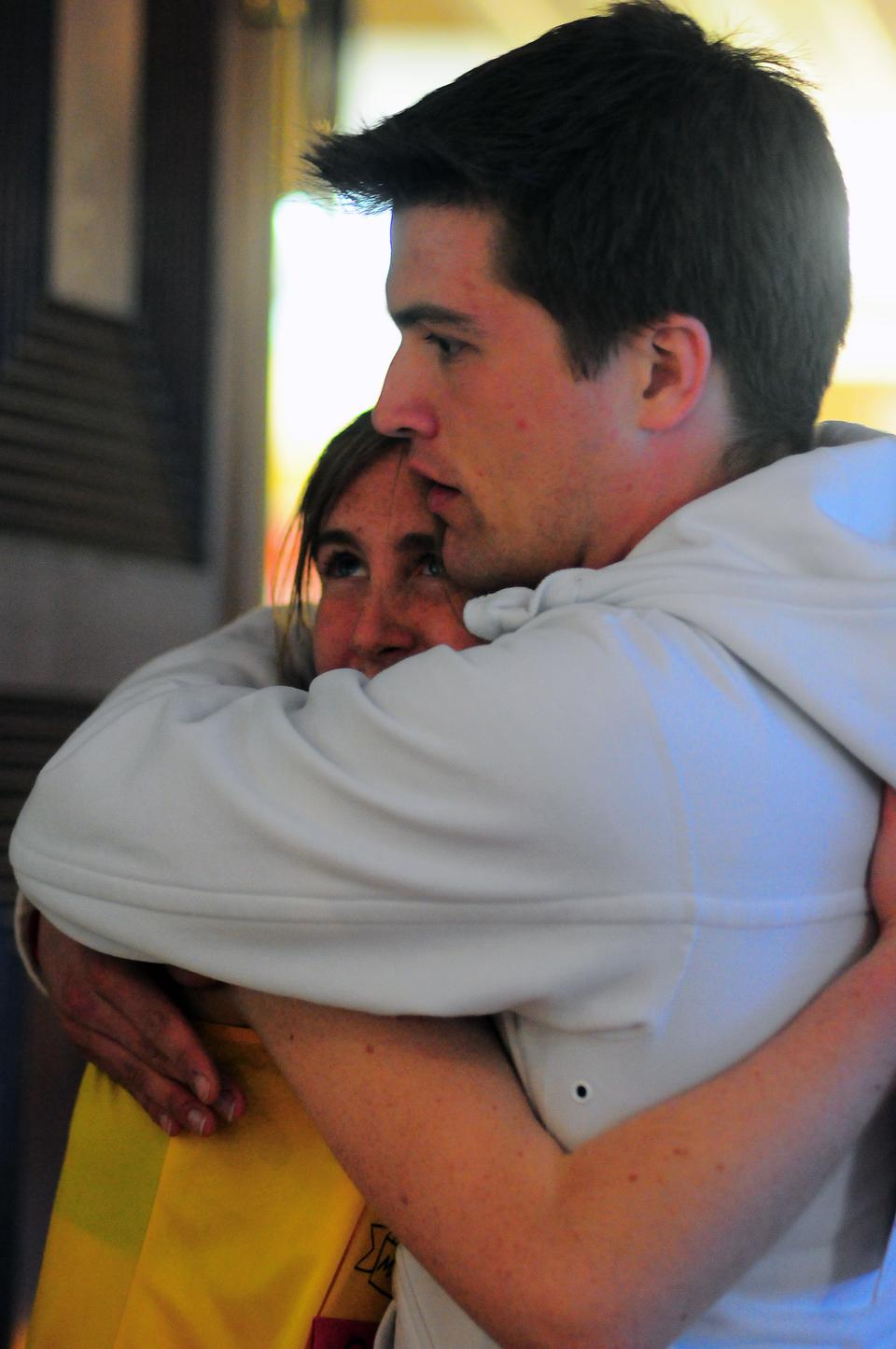
News
Cambridge Residents Slam Council Proposal to Delay Bike Lane Construction

News
‘Gender-Affirming Slay Fest’: Harvard College QSA Hosts Annual Queer Prom

News
‘Not Being Nerds’: Harvard Students Dance to Tinashe at Yardfest

News
Wrongful Death Trial Against CAMHS Employee Over 2015 Student Suicide To Begin Tuesday

News
Cornel West, Harvard Affiliates Call for University to Divest from ‘Israeli Apartheid’ at Rally
In the Wake of Tragedy, Students Gather To Cope, Offer Support

As Harvard affiliates anxiously awaited news from loved ones running or attending the tragedy-marred Boston Marathon Monday afternoon, House communities, peer advising groups, and concerned individuals created spaces where they could come together to try to make sense of the day's events.
Two bombs exploded on the north side of Boylston Street at 2:50 p.m. Monday, puncturing what is usually a day of celebration and achievement with fear and sorrow. The explosions killed three and injured more than 100 at the race’s finish line, and unconfirmed bomb threats and scares continued in Boston and Cambridge throughout the afternoon.
In an email to the Cabot House open email list, House Master Stephanie R. Khurana invited students to join her and Co-House Master Rakesh Khurana in the Cabot Private Dining Room, writing that “difficult moments are better spent together.”
Stephanie Khurana later wrote in an email to The Crimson that the gathering allowed students to reflect on the tragedy by sharing stories about their experiences. When marathon runners from Cabot returned to the House, waiting students welcomed them home with hugs of relief, Khurana added.
“One student just said to me that she feels so lucky to come home to a community where several dozen people can be together during such a trying time,” Khurana wrote.
Students involved with peer counseling groups on campus, such as Room 13 and Response, also sent emails over House lists encouraging their classmates to utilize their groups’ resources.
“It was important that we reach out to students on campus and make sure they knew that we were a resource that could be used,” said Alyssa R. Leader ’15, one of a group of undergraduate women who are counselors with Response. Although it generally addresses relationship and sexual assault issues, the group wanted students to know that they could turn to peer counselors in the wake of tragedy as well.
Outpouring of support came not just from groups but also from individuals keen to mitigate the burden of concern and sadness.
Brendan S. Eappen ’16 learned of the tragedy after finishing a midterm. The news was especially worrying because his mother was running in the race. After finding out that she was safe, Eappen decided he wanted to help others who were stressed or scared by the incident and posted on the Harvard Class of 2016 Facebook group that he would be happy to talk.
“I wanted to give people the opportunity to know they have support, know that it’s okay to feel dissettled by this,” said Eappen. “It is scary when it’s something so close to home, if they know somebody who was involved, nearly involved, or could have been involved.”
Celena C. Tyler ’14 and her roommate CiCi C. McMullen ’14 offered up their dorm room to “anyone looking for community, support, or friendship” in an email over her House list.
“I wanted to offer students an opportunity to connect as students because even though we have resources through the College and through campus organizations, a lot of the time I feel like the most meaningful support can come from the community that is most close to home,” said Tyler.
—Staff writer Steven S. Lee can be reached at stevenlee@college.harvard.edu. Follow him on Twitter @StevenSJLee.
Want to keep up with breaking news? Subscribe to our email newsletter.
